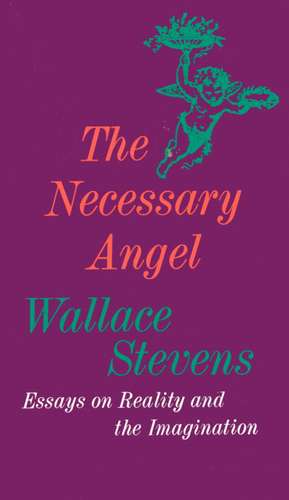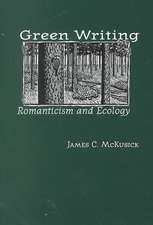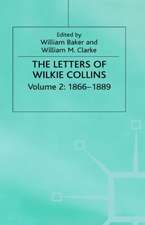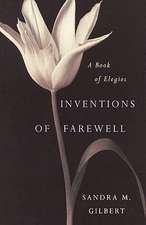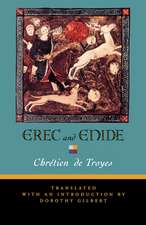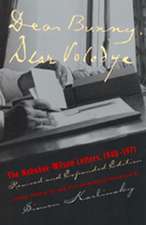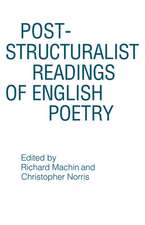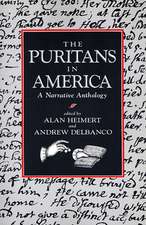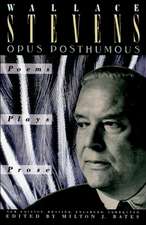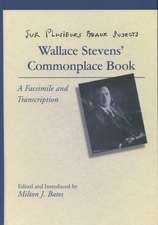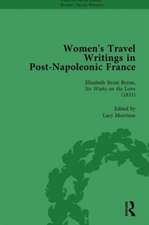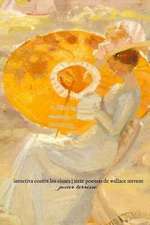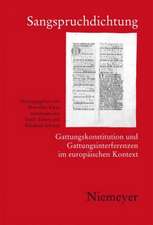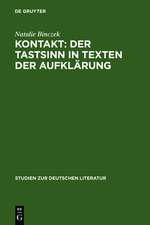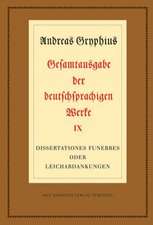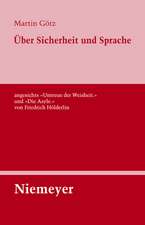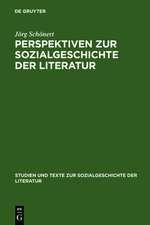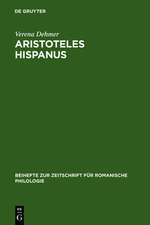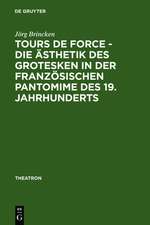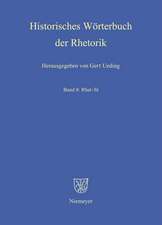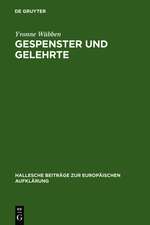The Necessary Angel: Essays on Reality and the Imagination
Autor Wallace Stevens, Stevens Wallaceen Limba Engleză Paperback – 31 ian 1965
Preț: 77.83 lei
Nou
Puncte Express: 117
Preț estimativ în valută:
14.89€ • 15.55$ • 12.33£
14.89€ • 15.55$ • 12.33£
Carte disponibilă
Livrare economică 14-28 martie
Preluare comenzi: 021 569.72.76
Specificații
ISBN-13: 9780394702780
ISBN-10: 0394702786
Pagini: 192
Dimensiuni: 111 x 186 x 13 mm
Greutate: 0.15 kg
Editura: Vintage Publishing
ISBN-10: 0394702786
Pagini: 192
Dimensiuni: 111 x 186 x 13 mm
Greutate: 0.15 kg
Editura: Vintage Publishing
Recenzii
"In this book, the first collection of his prose works, he accounts in scintillating language for the peculiarly modern and sometimes deliquescent fervor that has prompted his poems. Few poets have written so characteristically about their own craft." --Perspective --U.S.A.
"These are rich essays, simply constructed yet richly and elegantly written." -- Hayden Carruth, The Nation
"The most welcome attribute of the book is its humane good sense, equally manifest whether Stevens is discussing a desolate Pennsylvania churchyard. Plato's images or the personalities of those who prefer a drizzle in Venice to a hard rain in Hartford.''' --New Republic
"It is a rare pleasure to breathe the atmosphere of confidence and wholeness which distinguishes the world of Wallace Stevens. Here we are refreshed by certainty without fragmentariness, by joyous possibilities without dishonesty. Here we find a moral and philosophical center through which reality may be repossessed and re-created with each new poetic act." -- C. Roland Wagner, The Hudson Review
"These are rich essays, simply constructed yet richly and elegantly written." -- Hayden Carruth, The Nation
"The most welcome attribute of the book is its humane good sense, equally manifest whether Stevens is discussing a desolate Pennsylvania churchyard. Plato's images or the personalities of those who prefer a drizzle in Venice to a hard rain in Hartford.''' --New Republic
"It is a rare pleasure to breathe the atmosphere of confidence and wholeness which distinguishes the world of Wallace Stevens. Here we are refreshed by certainty without fragmentariness, by joyous possibilities without dishonesty. Here we find a moral and philosophical center through which reality may be repossessed and re-created with each new poetic act." -- C. Roland Wagner, The Hudson Review
Notă biografică
Wallace Stevens was born in Reading, Pennsylvania, on October 2, 1879, and died in Hartford, Connecticut, on August 2, 1955. Although he had contributed to the Harvard Advocate while in college, he began to gain general recognition only when Harriet Monroe included four of his poems in a sepcial 1914 wartime issue of Poetry. Harmonium, his first volume of poems, was published in 1923, and was followed by Ideas of Order (1936), The Man with the Blue Guitar (1937), Parts of a World (1942), Transport to Summer (1947), The Auroras of Autumn (1950), The Necessary Angel (a volume of essays, 1951), The Collected Poems of Wallace Stevens (1954), and Opus Posthumous (first published in 1957, edited by Samuel Frued Morse; a new, revised, and corrected edition by Milton J. Bates, 1989). Mr. Stevens was awarded the Bollingen Prize in Poetry of the Yale University Library for 1949. In 1951 he won the National Book Award in Poetry for The Auroras of Autumn, in 1955 he won it a second time for The Collected Poems of Wallace Stevens, which was also awarded the Pulitzer Prize in Poetry in 1955. From 1916 on, he was associated with the Hartford Accident and Indemnity Company, of which he became vice president in 1934.
Cuprins
I. The Noble Rider and the Sound of Words
II. The Figure of the Youth as Noble Poet
III. Three Academic Pieces
IV. About One of Marianne Moore's Poems
V. Effects of Analogy
VI. Imagination as Value
VII. The Relations between Poetry and Painting
II. The Figure of the Youth as Noble Poet
III. Three Academic Pieces
IV. About One of Marianne Moore's Poems
V. Effects of Analogy
VI. Imagination as Value
VII. The Relations between Poetry and Painting
